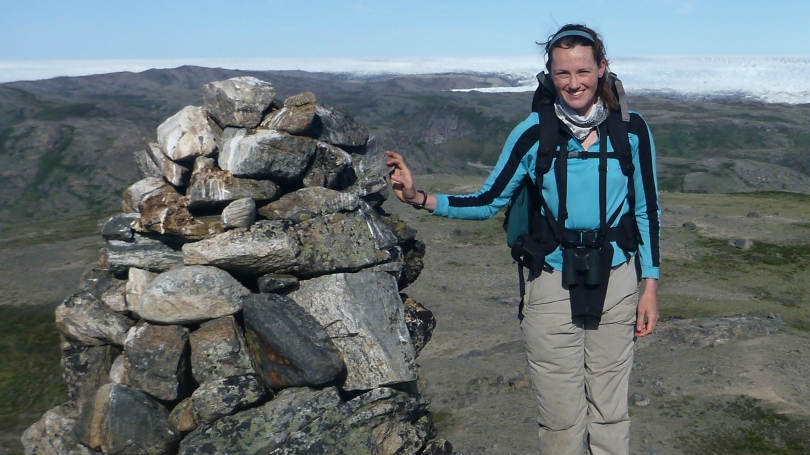
- About
- Programs
- Student Opportunities
- For Faculty
- News & Events
Back to Top Nav
Back to Top Nav
Back to Top Nav
Back to Top Nav
Back to Top Nav
Julia Bradley-Cook, Ph.D. Student, Ecology and Evolutionary Biology
Julia Bradley-Cook is studying how climate warming is altering the biological processes that control carbon flow through natural ecosystems. She investigates microbial decomposition in tundra soils where permafrost and cold soil temperatures have allowed for the buildup of large stores of carbon.
In 2011 and 2012, Julia collected samples from soil pits to measure soil carbon content across two spatial scales: the local area near Kangerlussuaq and the regional area of western Greenland (Kangerlussuaq, Sisimiut, and Nuuk). She used a combination of field experiments and laboratory studies to measure how decomposition rates vary with moisture and temperature.
Soil organic carbon storage varies substantially at local and regional scales and she will soon be able to describe how the "quality" of carbon varies as well. This determines the biological availability of the carbon and how sensitive it is to warming.
Carbon storage by soils prevents carbon from entering the atmosphere and further contributing to climate change, a positive feedback cycle that has huge implications for society. This research is especially relevant to Greenlanders because carbon-rich soils and permafrost are unique treasures of Arctic nations, and both are rapidly responding to global climate change.
Julia was chosen to participate in the prestigious 2014 American Meteorological Society Summer Policy Colloquium in Washington, DC.
YouTube: Julia Bradley-Cook was a 2012 winner of the NSF IGERT Video Poster Session in which she explains her research in a short video.
YouTube: Julia Bradley-Cook is featured in the viral video "Science in Greenland: It's a Girl Thing."
YouTube: Julia Bradley-Cook describes how climate change affects a basic building block of life